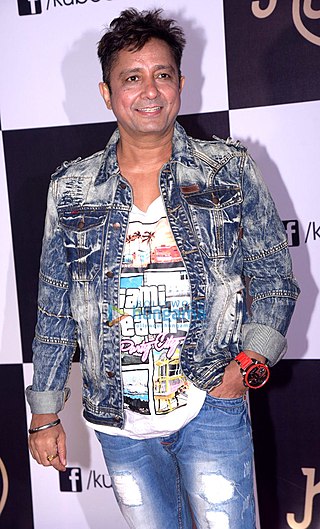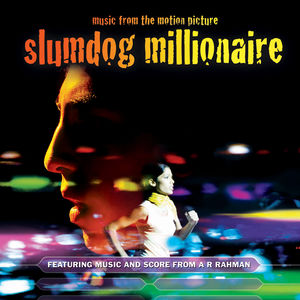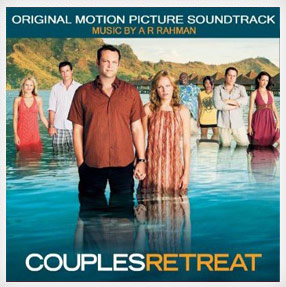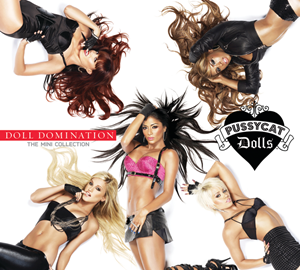
Allah Rakha Rahman is an Indian music composer, record producer, singer, songwriter, musician, multi-instrumentalist and philanthropist, popular for his works in Indian cinema; predominantly in Tamil and Hindi films, with occasional forays in international cinema. He is a winner of six National Film Awards, two Academy Awards, two Grammy Awards, a BAFTA Award, a Golden Globe Award, fifteen Filmfare Awards and seventeen Filmfare Awards South. In 2010, the Indian government conferred him with the Padma Bhushan, the nation's third-highest civilian award.
Ronald Fair is an American record producer, record executive, musical arranger, recording engineer and conductor. A traditional record producer since 1970, Fair is often credited with orchestral instrumentation in his productions of numerous hit songs. Furthermore, he has discovered and mentored prominent recording artists and led them to commercial breakthroughs—his mentees include Christina Aguilera, Vanessa Carlton, Keyshia Cole, Black Eyed Peas, Fergie, and the Pussycat Dolls. As an executive, Fair has held positions including chairman of Geffen Records, president of A&M Records, and was named the chief creative officer (CCO) of Virgin Records by 2014.

Sukhwinder Singh is an Indian playback singer who primarily sings Bollywood songs. He sang "Jai Ho" in the film Slumdog Millionaire, for which he won a Grammy Award for Best Song Written for a Motion Picture, Television or Other Visual Media. He has also received two Filmfare awards for his singing.

The Pussycat Dolls were an American girl group and dance ensemble, founded in Los Angeles, California, by choreographer Robin Antin in 1995 as a burlesque troupe. At the suggestion of Jimmy Iovine, Antin decided to take the burlesque troupe mainstream as a pop group. Antin negotiated a record deal with Interscope Geffen A&M Records in 2003 turning the group into a music franchise comprising Nicole Scherzinger, Carmit Bachar, Ashley Roberts, Jessica Sutta, Melody Thornton, and Kimberly Wyatt. Their debut single, "Sway", was featured on the soundtrack of the 2004 film Shall We Dance?.
Tanvi Shah is the first Indian woman to win a Grammy. Tanvi was born on 1 December 1985 in Tamil Nadu, India. She has sung in Tamil, Hindi and Telugu. In addition, she sings in Spanish, Portuguese and other romance languages, as well as Arabic. Her first song was "Yakkai Thiri" for the movie Aayutha Ezhuthu.

Mahalakshmi Iyer is an Indian playback singer, best known for her Hindi, Assamese and Tamil songs. She has sung in many other Indian languages as well, including Telugu, Marathi, Bengali, Odia, Gujarati and Kannada.

Vijay Prakash is an Indian Playback singer and also a Music director from Karnataka. He has given his voice for predominantly Kannada, Tamil, and Telugu language films, in addition to Hindi, Malayalam and Marathi language films. He has also performed shows with Zakir Hussain. Prakash won the Karnataka Government's 'Best Playback Singer' award for the year 2016 for the song "Nammooralli Chaligaladalli" from the film Beautiful Manasugalu.

Slumdog Millionaire is a 2008 British drama film that is a loose adaptation of the novel Q & A (2005) by Indian author Vikas Swarup. It narrates the story of 18-year-old Jamal Malik from the Juhu slums of Mumbai. Starring Dev Patel in his film debut as Jamal, and filmed in India, it was directed by Danny Boyle, written by Simon Beaufoy, and produced by Christian Colson, with Loveleen Tandan credited as co-director. As a contestant on Kaun Banega Crorepati, an Indian-Hindi version of Who Wants to Be a Millionaire?, Jamal surprises everyone by answering every question correctly so far, winning ₹1 crore, and he is one question away from winning the grand prize of ₹2 crore. Accused of cheating, he recounts his life story to the police, illustrating how he was able to answer each question.

Doll Domination is the second and final studio album by American girl group the Pussycat Dolls, released on September 19, 2008, by Interscope Records. The album's release was preceded by the departure of the group's longest-standing member Carmit Bachar. Development began in February 2008 where the group worked with previous collaborators Sean Garrett, Polow da Don and Timbaland and new ones such as Darkchild, J-Roc and Chase N. Cashe. Polow da Don, R. Kelly and Snoop Dogg also make guest performances on the album. Several songs on Doll Domination were originally recorded for the lead singer Nicole Scherzinger's debut solo album, Her Name is Nicole, which was shelved after the under-performance of its preceding singles.

Gulzar is an Indian Urdu poet, lyricist, author, screenwriter, and film director known for his works in Hindi cinema. He is regarded as one of greatest Urdu poets of this era. He started his career with music director S.D. Burman as a lyricist in the 1963 film Bandini and worked with many music directors including R. D. Burman, Salil Chowdhury, Vishal Bhardwaj and A. R. Rahman. Gulzar also writes poetry, dialogues and scripts. He directed films such as Aandhi and Mausam during the 1970s and the TV series Mirza Ghalib in the 1980s. He also directed Kirdaar in 1993.

Slumdog Millionaire: Music from the Motion Picture is the soundtrack album of the British drama film of the same name, directed by Danny Boyle. The original score and songs were composed by A. R. Rahman, who planned the score in two months and completed it in 20 days, a far shorter time period than usual.
"O... Saya" is a song from the soundtrack of the 2008 film Slumdog Millionaire. It was composed by Indian musician A. R. Rahman and British rapper M.I.A., both of whom performed on the recording.

"Jai Ho! " is a song by Indian composer A. R. Rahman and American girl group The Pussycat Dolls, recorded for the re-release of the group's second studio album Doll Domination (2008) and their EP Doll Domination – The Mini Collection (2009). It was released on February 23, 2009, by Interscope Records as the fourth single from the album and is an English remake of the original Hindi song "Jai Ho" which is taken from the soundtrack to the hit film Slumdog Millionaire (2008). The remake was conceived by record executives Jimmy Iovine and Ron Fair who tasked the Dolls' lead singer Nicole Scherzinger with creating a pop record that did not deviate from the original melody. Iovine and Fair also asked a number of other writers to create interpretations of the song, including Brick & Lace, The Writing Camp and Ester Dean. The final English version of "Jai Ho" was dubbed "Jai Ho! " and is sometimes also referred to as the "RF Mix" or "Ron Fair" Remix.

Couples Retreat is the soundtrack to the 2009 American film of the same name, directed by Peter Billingsley and starring Vince Vaughn and Jason Bateman. The original score and songs are composed and produced by A. R. Rahman and recorded in the summer of 2009 with the Hollywood Studio Symphony at the Sony Scoring Stage. The film marks his Hollywood debut, though he has already worked for some English-language films including Slumdog Millionaire, which fetched him two Academy Awards.
"Masakali" is a Hindi song from the 2009 Bollywood film Delhi-6. It was composed by A. R. Rahman, sung by Mohit Chauhan and lyrics penned by Prasoon Joshi. The song was released as part of the soundtrack album of the film on 14 January 2009 at the Indian Idol 4 competition. This song is remade as "Masakali 2.0" sung by Sachet Tandon and Tulsi Kumar from the film Marjaavaan.
A. R. Rahman Jai Ho Concert: The Journey Home World Tour is the first world tour by Indian musician A. R. Rahman. Rahman organised the tour in 2010, following the success of his soundtrack album Slumdog Millionaire, and particularly the song "Jai Ho". The tour was kicked off on June 11 at the Nassau Coliseum in New York and was initially decided to span 16 major cities worldwide. Amy Tinkham is the choreographer and director of the tour, John Beasley, Music Director, and Deepak Gattani of Rapport Productions produces it. The tour features 23 playback singers from India, along with several instrumentalists and dancers.
Aaj Ki Raat (transl. Tonight!) is a 2006 Hindi song from the Bollywood film soundtrack for Don: The Chase Begins Again. The track is composed by Shankar–Ehsaan–Loy trio with lyrics penned by Javed Akhtar. The song became more popular internationally when later used by AR Rahman in the Academy Award-winning 2008 soundtrack Slumdog Millionaire.

Doll Domination – The Mini Collection is the second extended play (EP) by American girl group the Pussycat Dolls. It was released on May 24, 2009 by Interscope Records. The EP is an extension of the group's second studio album, Doll Domination (2008), including some previously released singles, such as "When I Grow Up", "Whatcha Think About That" and "I Hate This Part", as well as three new songs. The Mini Collection was one of several reissues released throughout 2009 as further promotion for the Doll Domination era, being released in between the European and Australasian legs of the group's Doll Domination Tour. It debuted at number nine on both the Scottish Albums Chart and UK Albums Chart, and would go on to be certified gold by the British Phonographic Industry (BPI) for sales of at least 100,000 in the UK.














